Somalia
UN Secretary-General Antonio Guterres began a brief visit to Somalia in Mogadishu on Tuesday (Apr. 11).
Mr Guterres was greeted on arrival at the Somali capital's airport by Foreign Minister Abshir Omar Huruse, according to images posted on Twitter by the latter.
The authorities have drastically tightened security in Mogadishu for the unannounced visit. Most roads were closed and public transport restricted.
The visit by Guterres, who previously visited Somalia in March 2017, comes as the country is in the grip of a disastrous drought that has pushed many to the brink of starvation, and the government is engaged in a major offensive to counter a bloody Islamist insurgency.
The UN has launched an appeal for $2.6 billion in humanitarian aid for the troubled Horn of Africa country, but it is currently only 13% funded.
Five consecutive failed rainy seasons in parts of Somalia as well as Kenya and Ethiopia have led to the worst drought in four decades, wiping out livestock and crops and forcing at least 1.7 million people from their homes in search of food and water.
About half the population will need humanitarian assistance this year, with 8.3 million people affected by the drought, according to the UN.
"The crisis is far from over -- the needs remain high and urgent," the UN coordinator for Somalia, Adam Abdelmoula, said last week in Geneva. "Some of the most affected areas continue to face the risk of famine," he warned.
In March, floods caused by the seasonal rains killed 21 people and displaced more than 100,000, he added. The rains may not be sufficient to improve the prospects for food security, he said.
- Offensive against the Shebab -
Somalia was already hit by a famine in 2011 that killed 260,000 people, more than half of whom were children under the age of six, partly because the international community did not respond quickly enough, according to the UN.
According to a study published in March by the Somali Ministry of Health, the World Health Organisation and the UN agency Unicef, between 18,100 and 34,200 people could die as a result of the drought in Somalia during the first six months of this year.
Somalia, one of the world's poorest countries, has also been ravaged by decades of civil war, political violence and a bloody insurgency by the Shebab, a jihadist group affiliated to al-Qaeda.
President Hassan Sheikh Mohamoud, who returned to power in May 2022, promised the radical Islamists an "all-out war" last year and sent troops in September to support an uprising against the Shebab launched by local clan militias in the centre of the country.
In recent months, the army and militias known as the "Macawisley" have retaken swathes of territory in an operation backed by the African Union force in Somalia (Atmis) and US air strikes.
The government said in late March that more than 3,000 Shebab fighters had been killed since the offensive began. And according to the Ministry of Information, 70 towns and villages have been "liberated" from the rebels, who have been fighting the internationally backed federal government since 2007.
It has not been possible to independently verify these claims.
The Shebab have frequently retaliated to the offensive with deadly attacks, underlining their ability to strike at civilian, political and military targets in the heart of Somali towns and military installations despite government advances.
In a report to the UN Security Council in February, Antonio Guterres said 2022 had been the deadliest year for civilians in Somalia since 2017, largely due to shebab attacks.




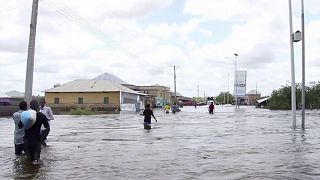
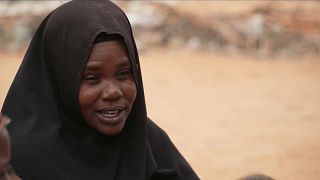
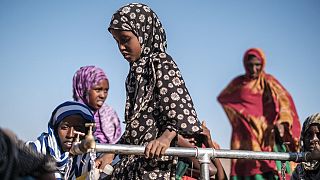
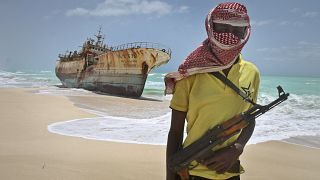
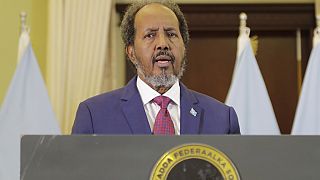
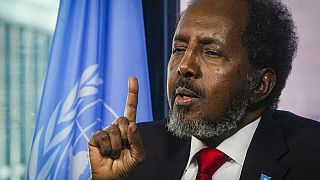

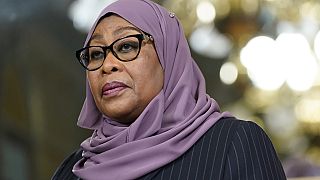
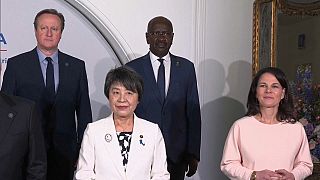
01:08
Burkina Faso expels three French diplomats for 'subversive activities'
Go to video
Deadly Sahel heatwave caused by ‘human-induced’ climate change: Study
Go to video
Britain's contentious plan to send some migrants to Rwanda hits a hurdle in Parliament
01:30
UN reports widening global inequality in sexual and reproductive health and rights
Go to video
Burna Boy, William Ruto land a spot on ‘TIME’ 2024 Most Influential People
Go to video
Another Nigerian socialite Cubana Chief Priest charged for throwing money in air